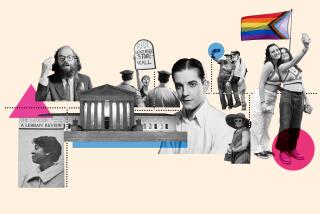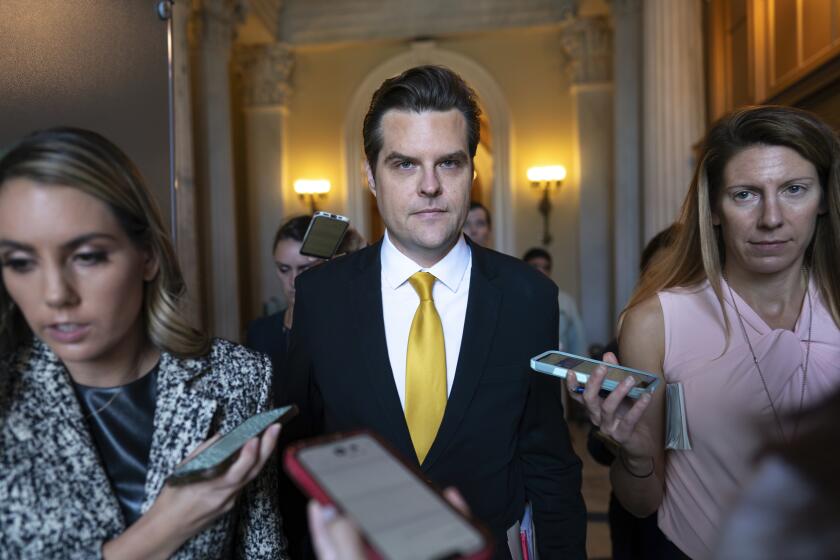Gay rights and the churchâs evolving role
Religious institutions in this country that object to homosexuality have nothing to fear from the gay-rights movement. Freedom of religion constitutionally protects them from having to perform same-sex marriages or elevate gays and lesbians to the clergy.
Yet as society opens itself to new viewpoints over time, those perspectives influence people of faith. So it was that the Presbyterian Church (U.S.A.) this week voted to allow the ordination of gay ministers, elders and deacons. In doing so, it joined three other mainstream churches, including the Episcopal Church.
In the legal sphere, there is supposed to be a bright line between church and state. The relationship between the two is far more complicated, though, when it comes to the realities of social evolution. Americansâ views on gay rights have been undergoing a rapid and dramatic change toward acceptance. That change is reflected in public policy shifts that have the U.S. military moving away from the troubling days of âdonât ask, donât tell,â that allow adoption by same-sex couples in many states and that, in a few, provide official recognition of gay and lesbian unions. It was inevitable that religious congregants, affected by the more tolerant viewpoints in the secular world, would begin asking questions about long-held beliefs in their houses of worship.
Tuesdayâs stamp of approval from a venerable institution will further influence public opinion. No doubt, some people of faith will never accept homosexuality, and they have that right. But this welcome move by the Presbyterian Church (U.S.A.) indicates that religion has a role to play in this nationâs lurching progress toward gay rights.
More to Read
A cure for the common opinion
Get thought-provoking perspectives with our weekly newsletter.
You may occasionally receive promotional content from the Los Angeles Times.










